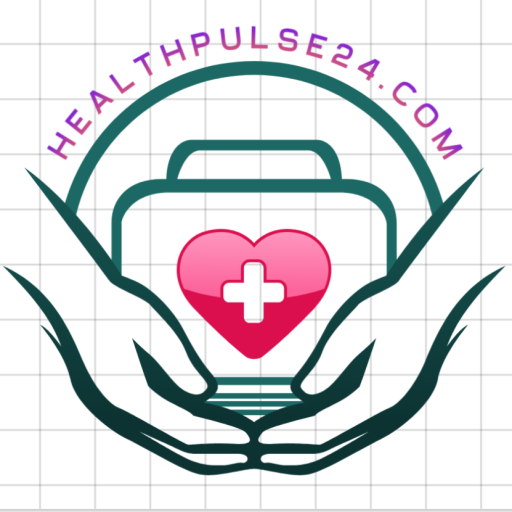Pregnancy is one of the most profound and transformative experiences in a woman’s life. It marks the beginning of a new chapter filled with excitement, anticipation, and a fair share of challenges. Understanding the physical, emotional, and psychological aspects of pregnancy can help expecting mothers prepare better for the journey ahead. This article offers a comprehensive guide to pregnancy — from conception to delivery — covering stages, symptoms, care tips, and more.
1. What Is Pregnancy?
Pregnancy is the state in which a woman carries a developing embryo or fetus within her uterus. It usually lasts about 40 weeks from the first day of the last menstrual period (LMP) to childbirth. A full-term pregnancy is considered to be between 37 and 42 weeks.
2. How Pregnancy Happens
Pregnancy begins with fertilization, when a sperm cell unites with an egg cell (ovum) during ovulation. This typically happens in the fallopian tube. The fertilized egg then travels to the uterus and implants itself into the uterine lining, where it begins to grow.
3. Early Signs and Symptoms
Early pregnancy symptoms may vary, but common signs include:
- Missed period
- Nausea or vomiting (morning sickness)
- Breast tenderness
- Fatigue
- Frequent urination
- Mood swings
- Mild abdominal cramps or spotting
These signs usually begin within the first few weeks after conception.
4. Pregnancy Tests and Confirmation

Pregnancy is confirmed using:
- Home pregnancy test: Detects hCG hormone in urine.
- Blood test: More accurate and can detect pregnancy earlier.
- Ultrasound: Confirms the gestational age and heartbeat.
Once pregnancy is confirmed, it’s important to begin prenatal care as early as possible.
5. Pregnancy Trimesters Explained
Pregnancy is divided into three trimesters:
- First Trimester (Weeks 1–12): Embryo development, major organs begin forming.
- Second Trimester (Weeks 13–26): Belly grows, fetus moves, gender may be identified.
- Third Trimester (Weeks 27–40): Fetus gains weight, prepares for birth.
Each trimester brings different changes and care requirements.
6. Fetal Development Week by Week
Week 1–4: Fertilization and implantation. Hormones change rapidly.
Week 5–8: Heartbeat begins, limbs form.
Week 9–12: Facial features develop, fetal movement begins.
Week 13–20: Organs mature, gender becomes visible on ultrasound.
Week 21–28: Baby can hear, develops sleep cycles.
Week 29–40: Rapid weight gain, lungs mature, baby moves into birth position.
7. Common Pregnancy Symptoms and Relief
Morning sickness: Eat small, frequent meals, avoid spicy foods.
Back pain: Use pregnancy pillows and good posture.
Swelling: Elevate feet, stay hydrated.
Heartburn: Avoid lying down after meals, eat slowly.
Constipation: Increase fiber intake, drink water.
Fatigue: Rest often, eat balanced meals.
These symptoms are usually temporary and vary in intensity.
8. Nutrition and Diet During Pregnancy
Eating well during pregnancy is crucial for both the mother and baby. A balanced pregnancy diet should include:
- Folic acid: Prevents neural tube defects.
- Iron: Supports blood volume.
- Calcium: Builds strong bones and teeth.
- Protein: Supports fetal growth.
- Fiber: Aids digestion.
Foods to avoid during pregnancy include raw seafood, undercooked meat, unpasteurized cheese, and high-caffeine or alcohol products.
9. Exercise and Physical Activity
Moderate exercise is safe and beneficial during pregnancy. Benefits include:
- Improved circulation
- Better sleep
- Reduced backaches
- Easier labor
Safe pregnancy exercises: Walking, swimming, prenatal yoga, light stretching.
Always consult a doctor before starting or continuing an exercise routine.
10. Prenatal Care and Regular Check-ups
Routine prenatal check-ups help monitor the baby’s growth and identify any potential risks. Important tests and scans include:
- Ultrasound scans
- Blood pressure checks
- Glucose screening
- Urine tests
- Genetic testing (if recommended)
Attending all prenatal appointments improves pregnancy outcomes significantly.
11. High-Risk Pregnancies
Certain factors increase the risk of complications during pregnancy:
- Age (under 17 or over 35)
- Pre-existing conditions (diabetes, hypertension)
- Multiple pregnancies (twins, triplets)
- Lifestyle choices (smoking, substance abuse)
- History of miscarriage or preterm birth
High-risk pregnancies require specialized monitoring and care.
12. Emotional and Mental Health in Pregnancy
Pregnancy can bring emotional highs and lows. Hormonal changes, anxiety, and stress are common. Some women may experience:
- Prenatal depression
- Anxiety disorders
- Mood swings
- Emotional exhaustion
Support from family, therapy, and mindfulness practices can help. Never hesitate to seek professional help.
13. Pregnancy Complications to Watch For
Some possible complications include:
- Gestational diabetes
- Preeclampsia
- Preterm labor
- Placenta previa
- Miscarriage
- Infections (UTIs, listeria)
Warning signs to call your doctor:
- Severe abdominal pain
- Heavy bleeding
- High fever
- Sudden swelling
- Blurred vision
- Reduced fetal movement
Early intervention can prevent serious issues.
14. Pregnancy and Work-Life Balance
Balancing work and pregnancy can be challenging. Consider:
- Flexible work hours
- Taking short breaks
- Delegating heavy tasks
- Communicating with HR about maternity leave
Proper time management and self-care can reduce stress and fatigue.
15. Medications and Vaccinations
Always consult your doctor before taking any medication during pregnancy.
Safe medications include:
- Prenatal vitamins
- Acetaminophen (for pain/fever)
- Some antacids and allergy medications
Important vaccinations:
- Tdap (tetanus, diphtheria, pertussis)
- Influenza (flu shot)
- COVID-19 vaccine (if advised by your doctor)
16. Preparing for Labor and Delivery
As your due date approaches:
- Pack a hospital bag
- Choose a birthing plan (hospital, natural, C-section)
- Take childbirth classes
- Pre-register at your birthing facility
- Learn about labor stages
Knowing what to expect helps reduce fear and anxiety.
17. Childbirth Options
There are different childbirth methods:
- Vaginal delivery
- Cesarean section (C-section)
- Water birth
- Home birth (with midwife)
Discuss your preferences and medical history with your healthcare provider to choose the safest option.
18. Postpartum Recovery
After delivery, the body needs time to heal:
- Bleeding (lochia) lasts 4–6 weeks
- Hormonal changes may cause mood swings
- Breastfeeding may be challenging at first
- Uterus gradually shrinks back to size
Common postpartum issues:
- Fatigue
- Pain at incision (if C-section)
- Baby blues or postpartum depression
Take rest, eat nutritious food, and seek support if needed.
19. Pregnancy Myths and Facts
| Myth | Fact |
|---|---|
| You can’t exercise during pregnancy | Light to moderate exercise is beneficial |
| Heartburn means baby has hair | No scientific evidence supports this |
| You should eat for two | Only a modest calorie increase is needed |
| Morning sickness only occurs in the morning | It can happen any time of day |
| Pregnant women can’t fly | Flying is safe up to 36 weeks with precautions |
20. Final Thoughts
Pregnancy is a life-changing experience that brings immense joy along with physical and emotional changes. With proper care, healthy habits, and timely medical support, most pregnancies progress safely and smoothly. Whether it’s your first pregnancy or not, staying informed and connected to your healthcare provider is key to a healthy journey from conception to childbirth.
FAQs About Pregnancy
1. When should I take a pregnancy test?
Usually after a missed period or 10–14 days post-ovulation.
2. Can I travel during pregnancy?
Yes, up to around 36 weeks, unless advised otherwise by your doctor.
3. Is it safe to have sex during pregnancy?
Generally yes, unless your doctor advises against it due to complications.
4. How much weight should I gain?
It depends on your pre-pregnancy BMI. Most women gain 25–35 pounds.
5. Can I drink coffee while pregnant?
Limit caffeine to under 200 mg per day (1–2 small cups).
6. What foods should I avoid?
Raw meat, sushi, soft cheeses, alcohol, and unpasteurized products.
7. When will I feel the baby kick?
Between 18–25 weeks, often earlier in second pregnancies.
8. How do I choose a delivery method?
Discuss your preferences, risks, and medical needs with your provider.
9. Can I dye my hair during pregnancy?
After the first trimester, it’s generally considered safe in moderation.
10. When should I go to the hospital?
When contractions are regular (5 minutes apart for 1 hour), or if water breaks.









